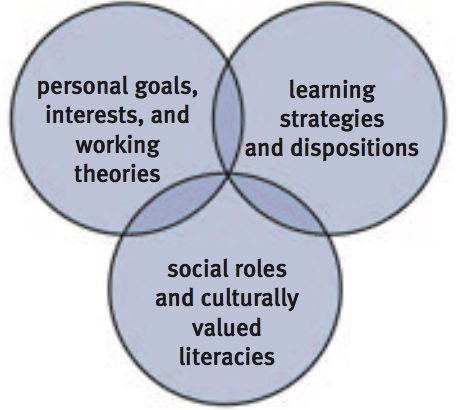Kei Tua o te Pae
Kei Tua o te Pae/Assessment for Learning: Early Childhood Exemplars is a best-practice guide that will help teachers continue to improve the quality of their teaching.
The exemplars are a series of books that will help teachers to understand and strengthen children's learning. It also shows how children, parents and whānau can contribute to this assessment and ongoing learning.
We are making improvements to our download-to-print functionality. So if you want a printed copy there are PDF versions available at the bottom of the main cover page.
Three aspects of competence – Ngā aronga e toru o te kaiaka
Teachers and other adults who work with children are invited to explore the following three aspects of competence:
- personal goals, interests, and working theories;
- learning strategies and dispositions;
- social roles and culturally valued literacies.

Each of these three aspects involves knowledge, skills, and attitudes. The aspects overlap, and the purposes of them will often be in opposition to each other. For example, personal goals and the smooth running of a centre may be at odds with each other. Māori aspirations for Māori children and the implementation of bicultural goals may also pose some major challenges. Tension between personal goals and social roles can raise issues of inclusion and exclusion, as illustrated in Vivian Paley's book You Can't Say You Can't Play (1992).
-
Personal goals, interests, and working theories
Children develop competence as they pursue their personal interests and goals. They develop working theories about themselves as learners and about the world around them. Their goals, interests, and working theories may not be immediately apparent, and many will change during the learning itself.
-
Learning strategies and dispositions
In documented assessments, teachers consider children’s culture, skills, inclinations, and intentions in relation to participation in learning and educational settings. Participation may be described differently in different settings. In any early childhood setting, children will have opportunities to explore and participate in a variety of ways.
Strategies and dispositions develop best in the context of whanaungatanga or reciprocal and responsive relationships with people, places, and things in the early childhood setting and beyond. Assessments are part of these reciprocal and responsive relationships.
-
Social roles and culturally valued literacies
As children learn, they explore a variety of roles and literacies and the skills and understandings that are allied to them. These roles and literacies may be valued nationally, or they may be specific to certain social or cultural groups.
In learning communities, children will have the opportunity to try out a range of sociocultural roles and their associated competencies, for example, tuakana, teina, friend, measurer, jam maker, tower builder, kaimahi, observer of insects, reader, citizen of the world, and member of hapū and iwi.
Children will also have opportunities to develop skills and understandings within a range of literacies, including reading, writing, mathematics, information technology, and the arts. (Future books will describe how assessments can contribute to these particular literacies).
